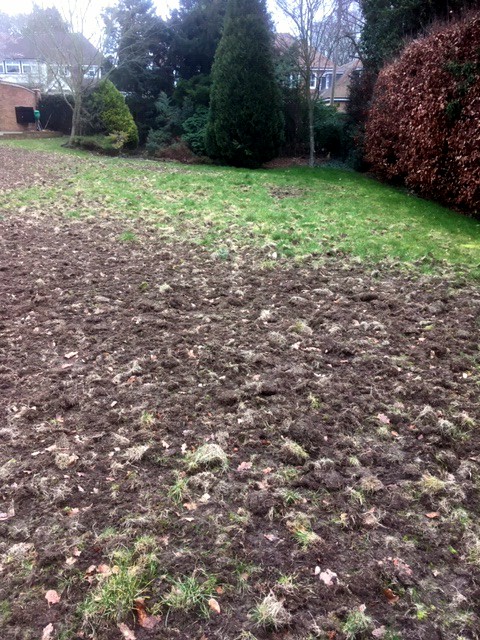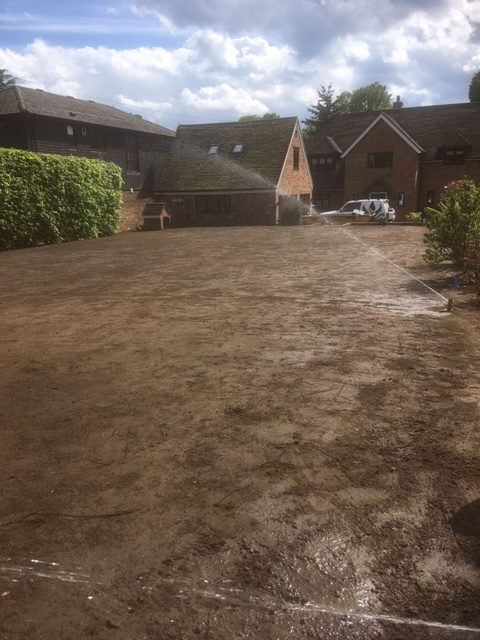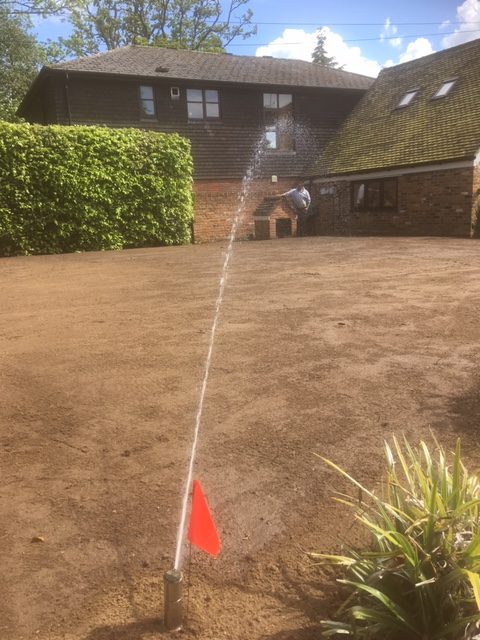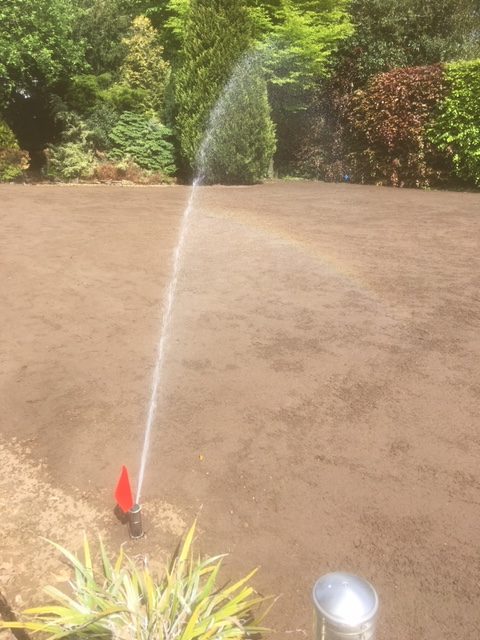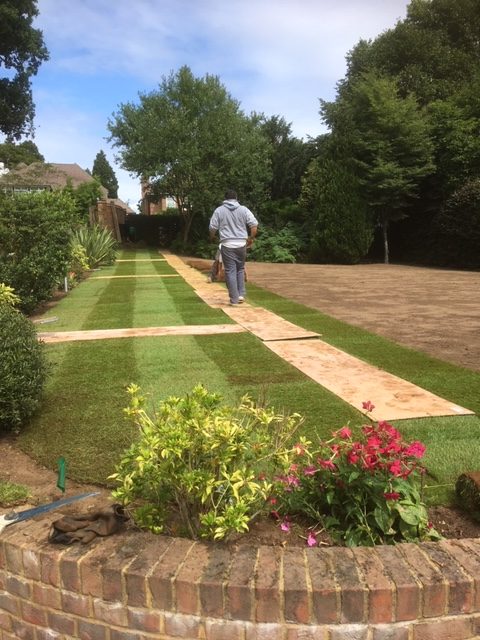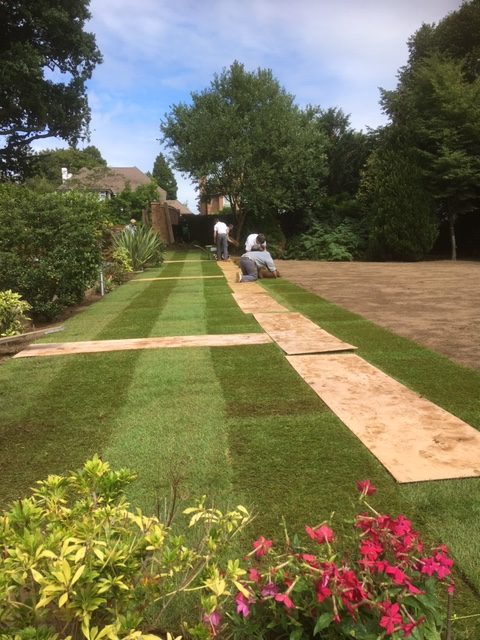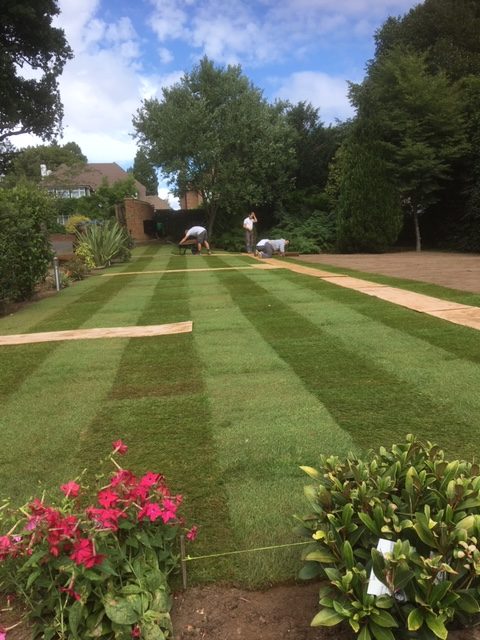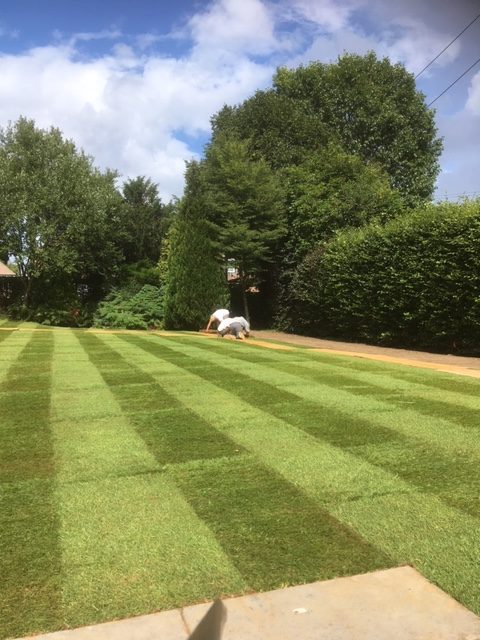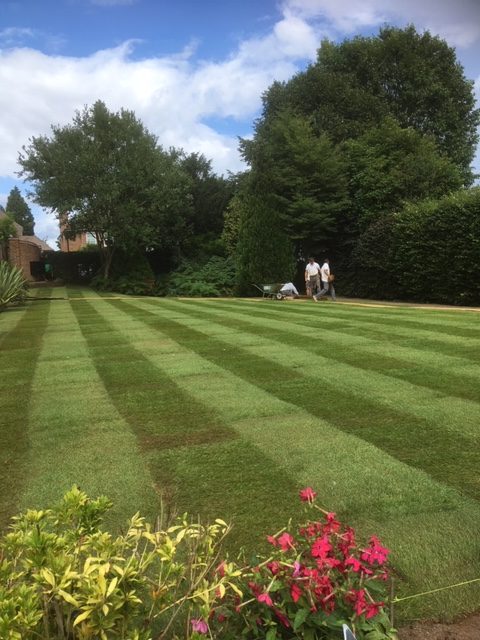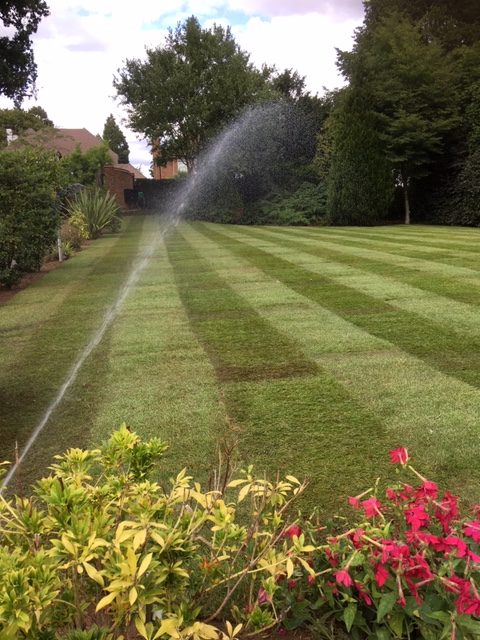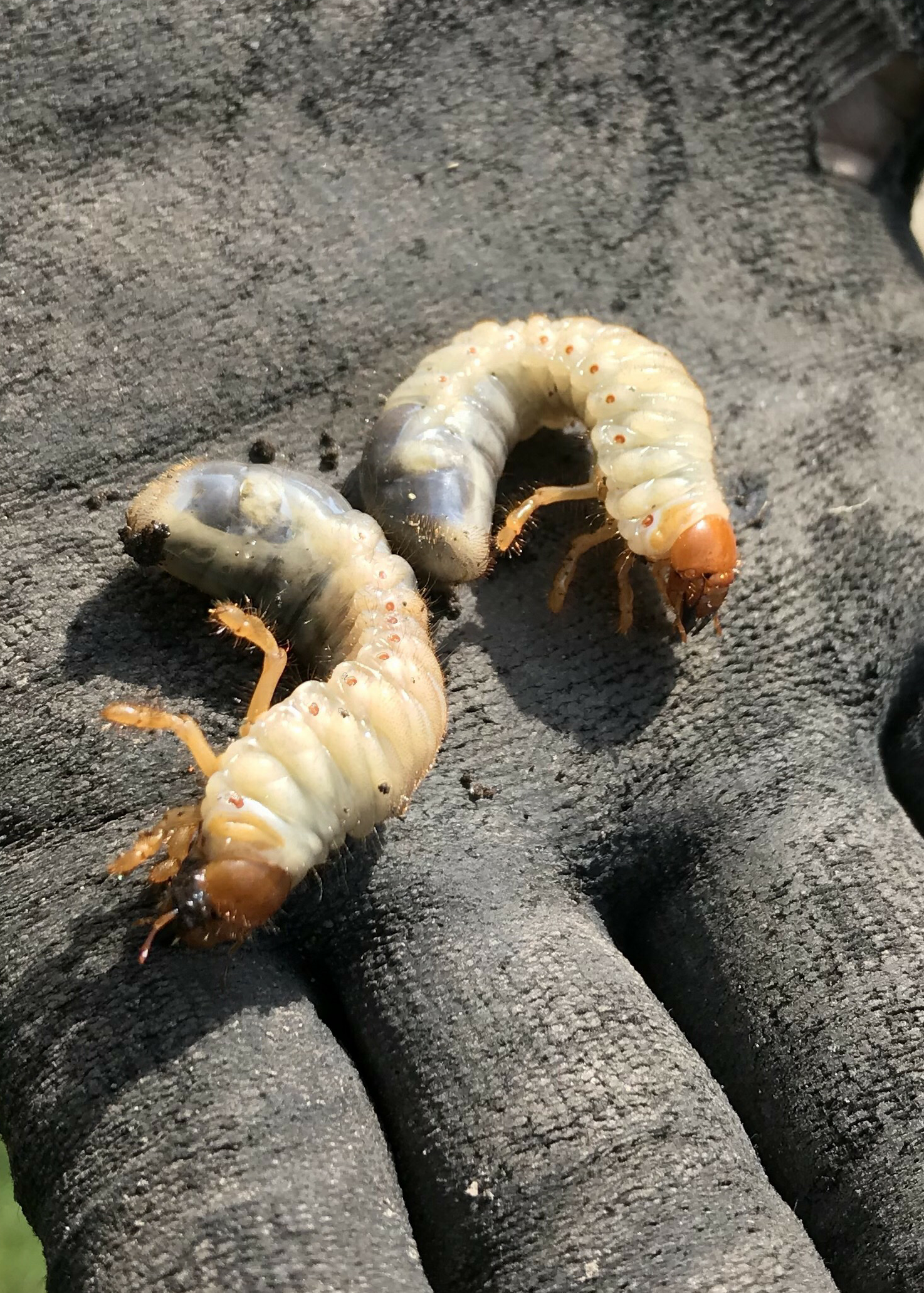
02 Sep Chafer grubs: A Feast for Crows!
Rosewood recently had to help a client whose lawn had been almost totally destroyed by chafer grub infestation. We thought we’d share our experience so that you could see how we dealt with it.
The grubs dwell in soil, and are the larval form of various kinds of chafer beetle. Many species are not a nuisance to gardeners, since they live in borders or compost heaps and feed on decaying plant matter.
What a pest!
However, the larvae of the garden chafer and the welsh chafer can wreak havoc on lawns. This is doubly true where there is a large infestation. The grubs themselves eat the roots of the grass, making it die off and become scrubby and patchy. If this weren’t bad enough, the lawn is then damaged further by birds and mammals digging it over to get to the grubs. They are a tasty snack, apparently, although I think I’ll pass!
A lawn like a ploughed field
When Rosewood began the job, the lawn looked extremely patchy, with hardly any grass left. As you can see below, you could hardly have called it a lawn at all.
A feast for crows!
Our first task was to strip off what remained of the grass. This left the soil bare so that the grubs were deprived of their food source, but the crows and magpies were able to feast on the grubs. We used a levelling lute to level the soil. Then we installed irrigation to the area.
A new beginning
Eight weeks later we returned to the site to lay new turf. The pictures below show the progression of the new lawn being laid throughout the day. Then once the grass was all laid, the irrigation system was switched back on.
Can I stop it happening?
Sadly, there’s not much that can be done to prevent chafer beetles from laying their eggs wherever they want to, but with a good quality irrigation system in place, a lawn is much healthier and stronger and more able to withstand attack by this particular pest. If you need to find out more about chafer grubs, you can visit the Royal Horticultural Society chafer grub page
To find out about installing irrigation, just give Rosewood a call on 01727 811448, or use the form on our Contact page

